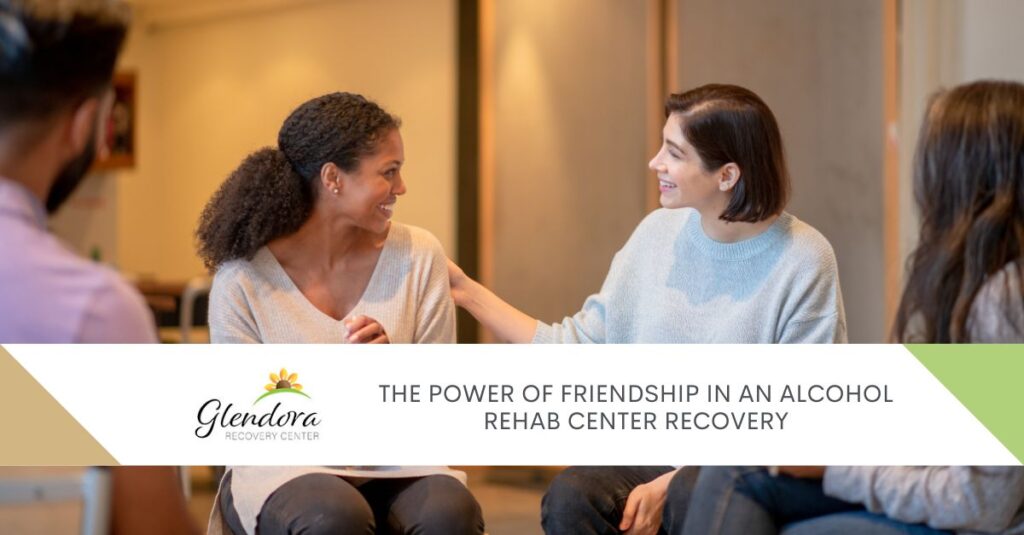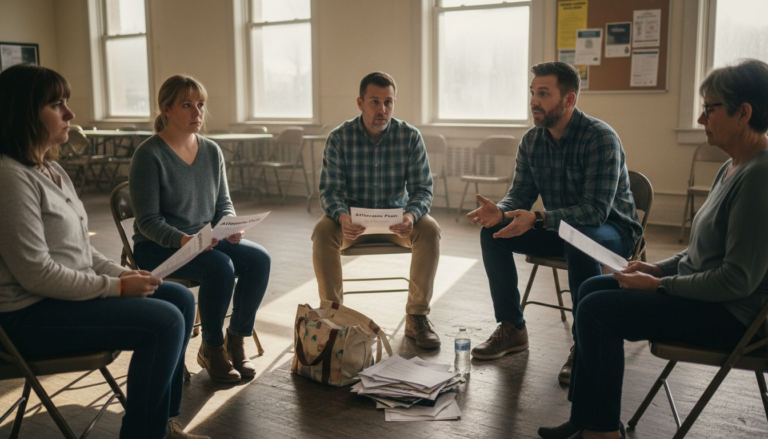For individuals recovering from alcohol addiction, friendships are essential lifelines. At our alcohol rehab center, we focus on building and maintaining friendships that significantly aid the recovery process by providing emotional support and motivation. At Glendora Recovery Center, we foster these vital connections so that the journey to recovery can be easier. Friendships in recovery offer a sense of belonging and a support system crucial for maintaining sobriety. Glendora Recovery Center you can be sure our programs and activities promote strong, supportive friendships among their clients.
The Significance of Friendship in Recovery
Friendships provide emotional support and motivation, which are key components of successful recovery. In an alcohol rehab center, these connections help individuals feel understood and less isolated, boosting mental health and providing the strength needed to stay committed to recovery. For many, the bonds formed during treatment become a critical part of their support system. Social connections have a profound impact on mental health and sobriety. Studies show that individuals with strong social networks are more likely to maintain long-term recovery. Friends can offer practical help, positive reinforcement, and healthy distractions, reducing the likelihood of relapse. Research highlights the benefits of friendships in addiction recovery. According to SAMHSA, individuals engaged in supportive social networks experience more positive recovery outcomes. These connections help reduce loneliness and depression, common triggers for relapse. By fostering strong friendships, individuals build a resilient support system essential for maintaining sobriety.
Activities and Programs Promoting Friendship and Community
At an alcohol rehab center, social activities are designed to promote friendship and community. Group therapy sessions provide a structured environment for sharing experiences and supporting each other, building trust and meaningful connections. These relationships often extend beyond therapy, offering ongoing support throughout recovery. Recreational activities, such as sports, arts and crafts, and outdoor adventures, also play a crucial role in fostering friendships. These activities provide opportunities to bond over shared interests in a relaxed setting, further strengthening social networks. Community-building programs and events are vital at Glendora Recovery Foundation. Support groups and team-building exercises encourage collaboration and mutual support. These programs help clients develop skills to build and maintain healthy relationships, creating a strong sense of community and belonging.
Building Strong Friendships to Aid Sobriety
Peer support is a cornerstone of maintaining long-term sobriety. In an alcohol rehab center, friendships with peers who understand the challenges of recovery can provide invaluable support. These relationships offer a safe space to share experiences, celebrate successes, and seek advice during difficult times. By leaning on each other, individuals can build a network of support that is crucial for navigating the complexities of recovery. Strategies for building and nurturing friendships in recovery are essential for individuals to thrive. One effective approach is to actively participate in group activities and therapy sessions, where individuals can meet others who are on a similar journey. Engaging in open and honest communication, showing empathy, and being supportive can help build trust and deepen connections. Additionally, maintaining these friendships outside of the rehab center, through regular check-ins and social gatherings, can strengthen these bonds and provide ongoing support. Examples of successful friendship-building initiatives at Glendora Recovery Foundation highlight the positive impact of these relationships. Activities such as buddy systems, where new clients are paired with those further along in their recovery, provide immediate support and mentorship. Social events, like community service projects and group outings, foster a sense of camaraderie and shared purpose. These initiatives not only help individuals form strong friendships but also enhance their overall recovery experience by creating a supportive and encouraging environment.
Strengthening Recovery Through Friendship and Community
As we’ve mentioned before, building friendships in recovery is crucial for long-term sobriety and overall well-being. At Glendora Recovery Foundation, we are committed to fostering these vital connections through our various programs and activities. Our dedication to raising funds for those lacking resources for treatment ensures that everyone has access to the support they need. Friendships formed at an alcohol rehab center provide the emotional support and motivation necessary for successful recovery. By participating in our community-building programs, individuals develop the skills needed to build and maintain healthy relationships, offering a robust support system for navigating recovery challenges. We encourage everyone to get involved and support our mission. Whether through donations, volunteering, or participating in our events, your involvement makes a difference. Together, we can create a supportive community that helps individuals thrive in their recovery journey. Explore the programs offered by Glendora Recovery Foundation and join us in building a brighter, more connected future.



